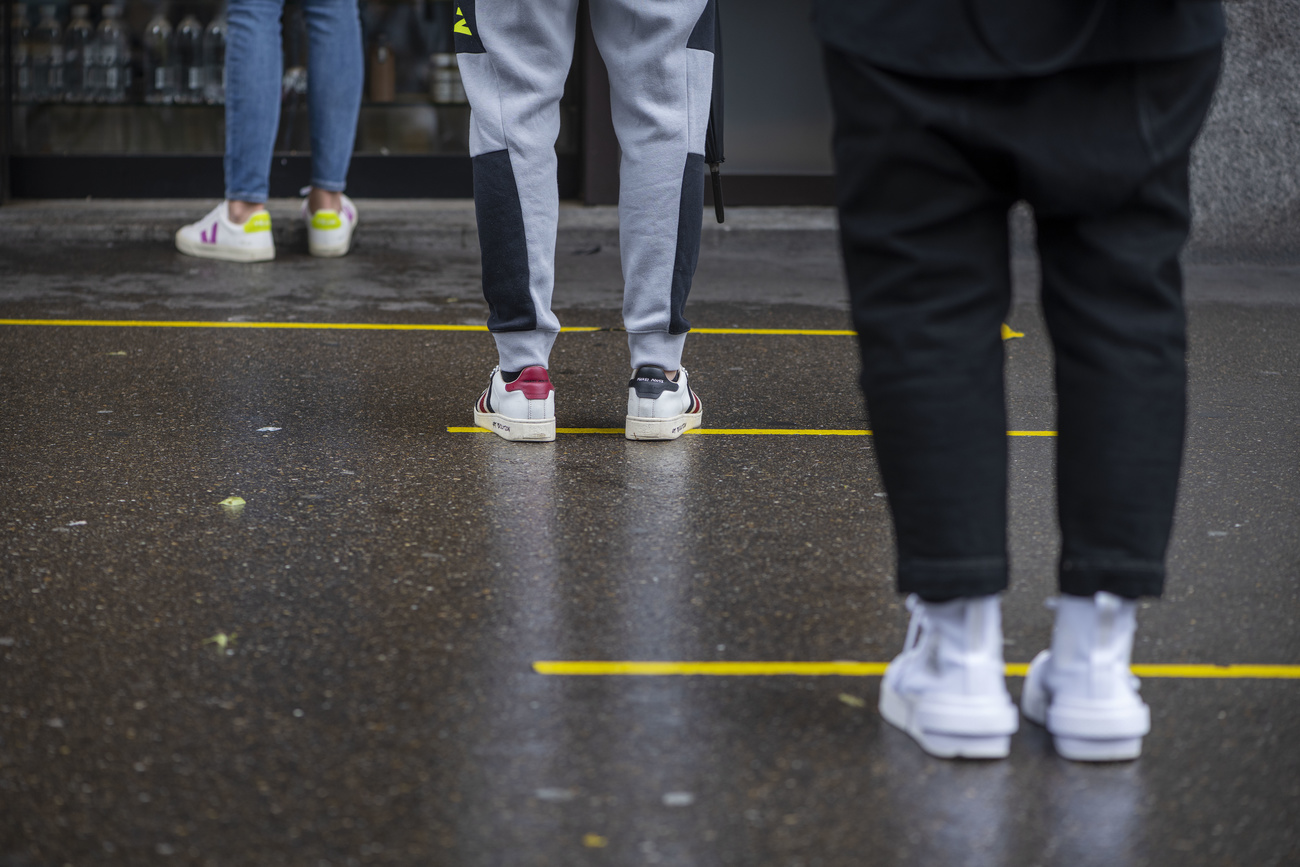
Switzerland eased lockdown measures too soon, warns top official

The head of the Swiss Covid-19 taskforce has warned that the lifting of lockdown restrictions last Friday was premature.
“We are not ready for the most recent easing,” Matthias Egger, who leads the scientific task force set up by the Swiss government to coordinate advice and research on the virus, told the NZZ am Sonntag newspaper.
“We are still lacking, like previously, a functioning monitoring system for the whole of Switzerland. It’s also unclear how good the contact tracing system is.”
On June 19 the Swiss government announced that it was simplifying and lifting most of the remaining restrictions introduced to combat the spread of coronavirus, as of June 22. The recommended “social distance” is being reduced from two to 1.5 metres with immediate effect.
From Monday, events drawing up to 1,000 people will be allowed (as opposed to 300 at present), provided contact tracing can be guaranteed. Only gatherings of more than 1,000 remain banned until the end of August. Restrictions on when businesses such as bars and restaurants can be open will also be lifted. People will no longer be required to sit down inside.
From tomorrow civil and political gatherings and demonstrations will be allowed but people are required to wear masks. The government is also ending its recommendation that people work from home wherever possible. It will be up to employers to decide and put the necessary safety measures in place.
Egger remains cautious, warning that from a scientific point of view there is a high risk that the easing could endanger the Alpine country if the virus again spreads. The number of new infections has fallen from the peak of 1,000 cases a day in mid-March to 10-35 in the past few weeks. Hospitals have shown their ability to cope and have not been overwhelmed as feared.
The head of the taskforce said the fight against the epidemic had gone well so far. But he warned that the number of new infections appeared to have increased in the past two weeks and that it is likely that the reproduction rate is 1 or higher.

More
How Switzerland became Switzerland: the main chapters of the country’s history up to 1848
The reproduction rate, or ‘R’ value, estimates how many people an infected person passes the virus on to. Experts say that number needs to stay below one for the spread to remain low.
Egger said there is a risk that the number of cases may increase sharply in the future. The Covid-19 taskforce considers it premature to lift new restrictions, he added.
He said the recent increase in new cases and rate of contagion was probably due to the easing announced on May 11. The effects of further lockdown easings on May 28, June 6, and June 15 are not yet clear he added.
The official stressed the importance of contact tracing and quarantine measures in the cantons, as well as extensive data collection. Tests must also be carried out quickly and on a large scale in high-risk situations. If an outbreak is suspected, the individual’s entire entourage must be tested, not just close contacts.

More
Coronavirus: the situation in Switzerland

In compliance with the JTI standards
More: SWI swissinfo.ch certified by the Journalism Trust Initiative





























You can find an overview of ongoing debates with our journalists here . Please join us!
If you want to start a conversation about a topic raised in this article or want to report factual errors, email us at english@swissinfo.ch.